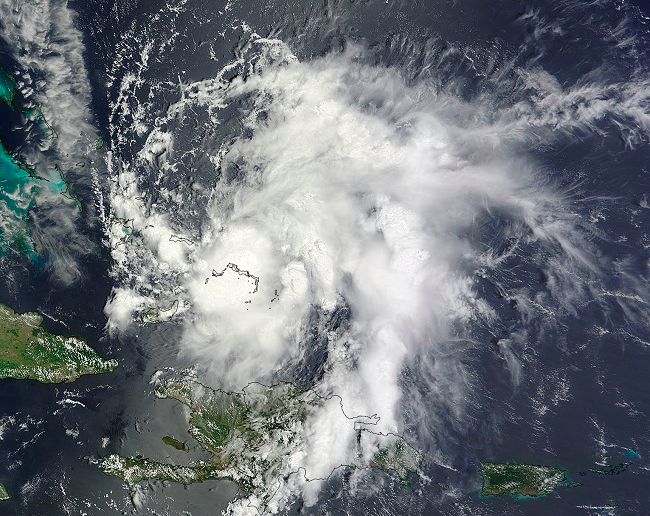Flash Floods Hit England Ahead of Hurricane Bertha Storms

Parts of the UK have been hit flash flooding, as the rain and high winds of Hurricane Bertha sweep across the country.
More than 800 homes in Cambridgeshire have been evacuated after more than 50mm of rain feel in an hour on Friday evening.
The torrential rain caused a riverbank to collapse, left 856 homes without power, trapped drivers and closed two supermarkets and the A14 motorway. Flash flooding also affected parts of Norfolk, Lincolnshire and Kent.
The floods came as forecaster predicted more bad weather for the UK as the remnants of Hurricane Bertha moves across the UK. In recent weeks Hurricane Bertha devastated the Carribean, sweeping the islands with 90mph winds.
As the storm moved across the Atlantic Ocean the hurricane became weaker and was downgraded to a tropical storm and then to an extratropical storm. Forecasters say this made the course of the weather system harder to predict.
Bertha's remains are expected to reach the UK on Sunday. The Met Office said the weather system had the potential for causing more than 50mm of rain and 60mpg gusts on coasts, and flooding and dangerous waves in coastal areas.
The Met Office's chief meteorologist, Paul Gundersen, said: "There is still some uncertainty surrounding this weekend's weather, with the potential for heavy rainfall, strong coastal winds and large waves on Sunday. However, there is still a chance that the system may pass to the south of the country.
"Rain and strong winds may well bring disruption, especially across southern parts of the UK. People should stay up to date with the latest Met Office warnings."
The Environment Agency is also warning of the possibility of flooding in some parts of England and Wales.
Craig Woolhouse, flood risk manager at the Environment Agency, said: "Heavy rain on Sunday may lead to localised surface water flooding in some parts of England and Wales. On Sunday and Monday a combination of high spring tides and strong westerly winds bring a risk of large waves and spray and possible flooding to the south west coast of England and along the Severn Estuary."
Ross Macloed, RNLI Coastal safety manager, said: "Extreme wave heights combined with high tides can make some normal coastal activities we take for granted significantly more risky; the force of surging water or breaking waves can easily knock you over and quickly drag you out of your depth and once in the water it can be difficult to get out."
© Copyright IBTimes 2025. All rights reserved.





















